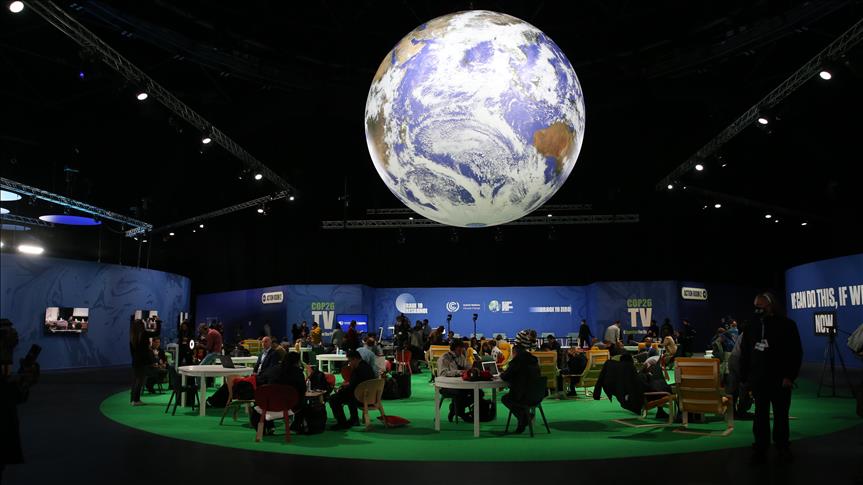A sense of urgency, transparency and inclusivity is needed in all negotiations at COP26, the president of the 26th Conference of Parties to the United Nations Framework Convention on Climate Change (UNFCCC) said during a press conference Monday.
"My priority now is that pace and transparency underpin the Paris agreement," Sharma said at the start of the second week of COP26.
The first day of the second week was marked as the adaptation, loss and damage day at the conference where topics on the extent and outcome of extreme weather conditions were discussed.
In response to these conditions over the last year, Sharma urged for a global agreement to respond to adaptation needs despite the difficulties in 200 countries reaching a consensus.
"However, the progress made last week demonstrates that a constructive spirit among negotiators exists. In Glasgow, we have a unique opportunity to reach a historic outcome and I am committed to bringing countries together. We want to forge an agreement," he said.
He explained that this, in effect, means more action should be taken this decade to help keep the global temperature limit of 1.5 degrees in reach.
"They [commitments] must be delivered on and accounted for today on adaptation loss and damage day as the spotlight will be on these nations and communities which are the most vulnerable to climate change whose voices are too often left unheard," he said.
Around $232 million has been committed to an Adaptation Fund that finances projects and programs that help vulnerable communities in developing countries adapt to climate change. This amount represents the highest single mobilization to the fund and more than double the previous highest collective mobilization with a $20 million contribution from the UK.
Commitments came from the US, Canada, Sweden, Finland, Ireland, Germany, Norway, Italy, Qatar, Spain, Switzerland, the UK and the Quebec and Flanders governments.
The UK announced $393.4 million (£290 million) in new funding for adaptation today, including $371 million (£274 million) for the Climate Action for a Resilient Asia (CARA) program.
"Loss and damage has historically been seen as a polarizing issue. But I am encouraged that the mood music has changed and there is now a practical recognition. Action is needed on this topic in the face of growing impacts," Sharma underlined.
Patricia Espinosa, the executive secretary of the UNFCCC, said she was cautiously optimistic about the participation at the political level.
By Gulsen Cagatay and Nuran Erkul Kaya in Glasgow, Scotland
Anadolu Agency


